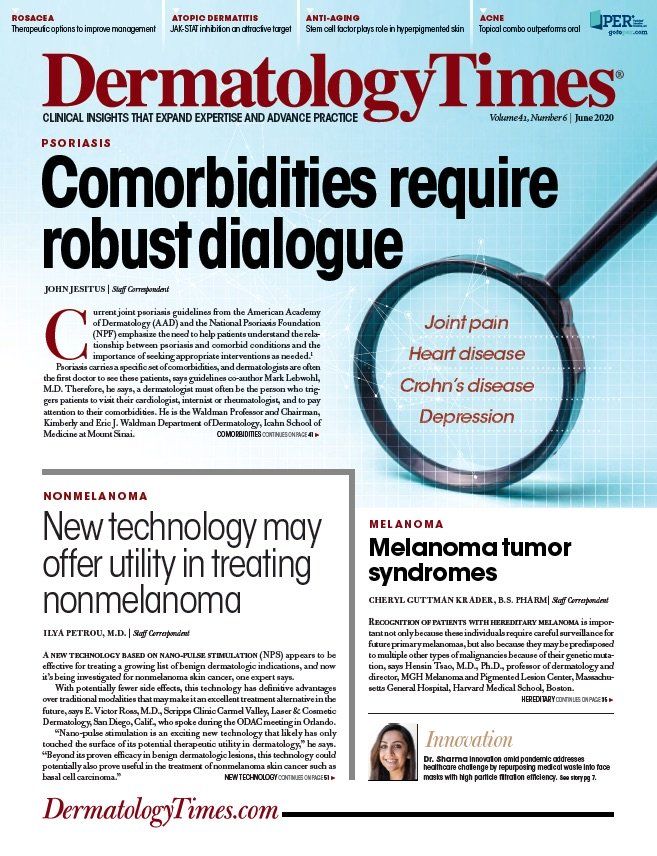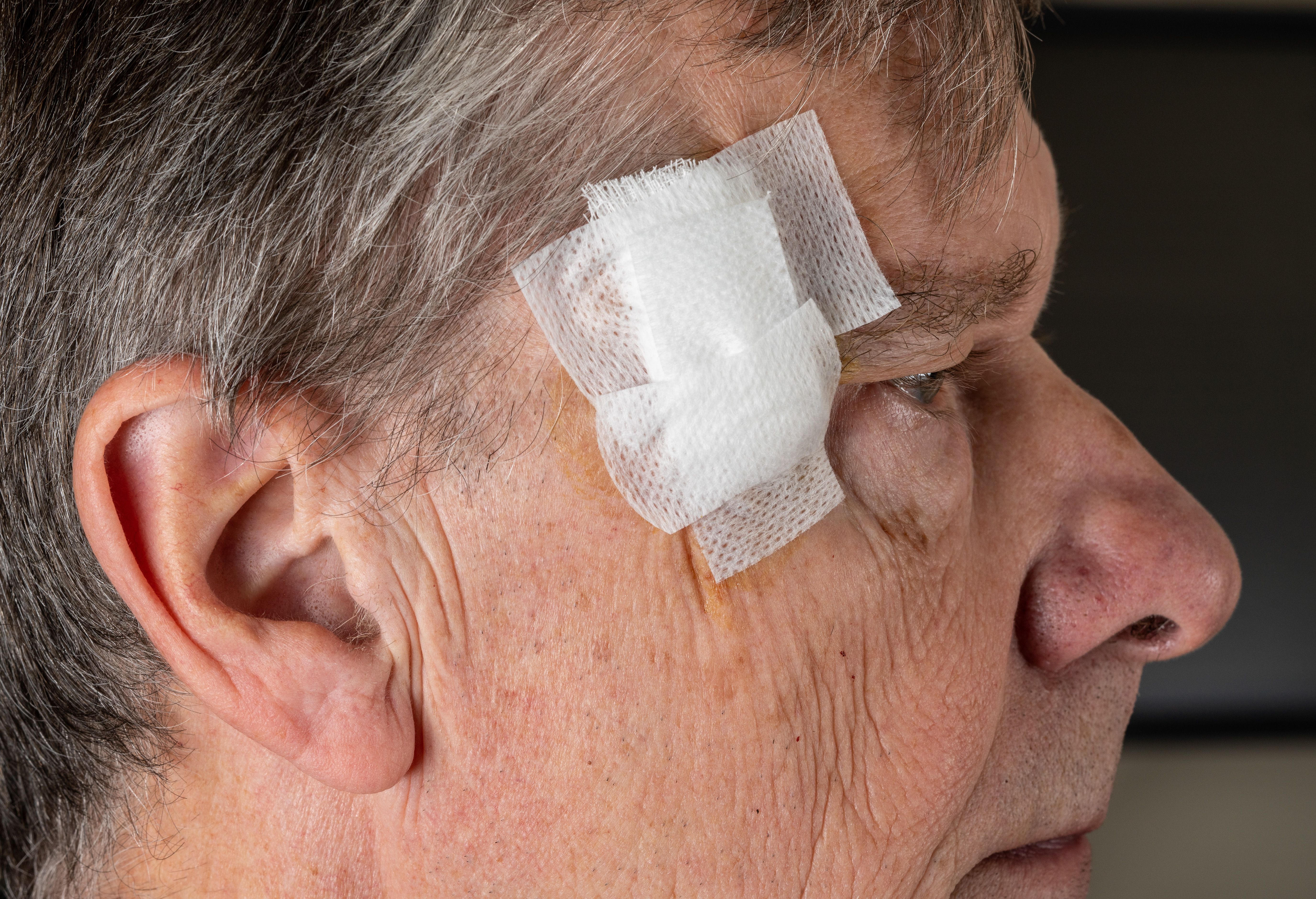- Case-Based Roundtable
- General Dermatology
- Eczema
- Chronic Hand Eczema
- Alopecia
- Aesthetics
- Vitiligo
- COVID-19
- Actinic Keratosis
- Precision Medicine and Biologics
- Rare Disease
- Wound Care
- Rosacea
- Psoriasis
- Psoriatic Arthritis
- Atopic Dermatitis
- Melasma
- NP and PA
- Skin Cancer
- Hidradenitis Suppurativa
- Drug Watch
- Pigmentary Disorders
- Acne
- Pediatric Dermatology
- Practice Management
- Prurigo Nodularis
- Buy-and-Bill
Publication
Article
Dermatology Times
Laser therapy may be practical for some basal cell carcinomas
Author(s):
For nonaggressive basal cell carcinomas, laser therapy could be a practical treatment and management solution, according to the authors of a recent review.
Laser therapy could be a practical management solution for patients with non-aggressive subtypes of basal cell carcinoma (BCC), according to authors of a recent review.1
RELATED: New device treats nonmelanoma skin cancer
Depending on the subtype of BCC, there are many different treatment modalities, including topical imiquimod, 5-fluorouracil, diclofenac, and more invasive techniques such as electrodessication and curettage (ED&C), standard excision, Mohs surgery, and radiation. However, not all patients are amenable all modalities due to compliance, tumor burden or contraindications, begging the need for alternative treatment options.
Vascular-specific lasers have been increasingly studied for the treatment of BCC, specifically for non-aggressive BCCs including the superficial and nodular subtypes and may achieve good outcomes, according to authors Jusleen Ahluwalia, M.D., Mathew Avram, M.D., and Arisa Ortiz, M.D., department of dermatology, University of California, San Diego Health, La Jolla, Calif., and Massachusetts General Hospital, Boston.
“We foresee this therapy being as useful a modality as electrodessication and curettage is now to best address the basal cells selectively and through its mechanism of targeting the vasculature of the basal cells, but with minimal-to-no scarring,” Dr. Ahluwalia says. She is a second-year resident at the University of California, San Diego.
Laser therapy can also be of significant advantage in patients with Gorlin syndrome. These patients have to undergo repeated surgical or ED&C procedures for BCC removal, Dr. Ahluwalia says. They may also have compliance issues to prescribed topical therapies, leading to suboptimal treatment outcomes.
For nonaggressive BCCs including the superficial and nodular subtypes, laser therapy is proving very useful. However, for more aggressive subtypes such as the morpheaform BCC subtype, Dr. Ahluwalia says Mohs surgery is the highest standard of care and would be the treatment of choice because margins can be evaluated. The depth of the laser penetration injury of the lasers studied vary, ranging from a 1.5-mm depth with the pulsed dye laser (PDL) to 2.15 mm with the long-pulsed Nd:YAG laser.
“Pulsed dye lasers were initially employed because of their vascular specific wavelength leading to good treatment outcomes; however ... they do not achieve enough depth of injury. Although we use both devices, the long-pulsed Nd:YAG laser is often preferred.” she says.
For those BCC patients who defer from taking systemic vismodegib (Erivedge, Genentech) due to the potential for severe side effects, lasers could serve as a tool for drug-assisted delivery, hopefully reducing the potential of those side effects while maintaining drug efficacy.
RELATED: Targeted therapies for advanced basal cell carcinoma
“There is a relative lack of non-surgical treatment alternatives for BCC and the need for novel treatment approaches with less scarring is definitely there. While the current treatments for BCC are effective, they may be limited by patient preference or comorbidities, and in many cases, laser therapy can be a good treatment solution," Dr. Ahluwalia says.
Disclosure
Dr. Ahluwalia reports no relevant disclosures.
Reference
1. Ahluwalia J, Avram MM, Ortiz AE. The evolving story of laser therapeutics for basal cell carcinoma. Dermatol Surg. 2020 Feb 11. [Epub ahead of print]






